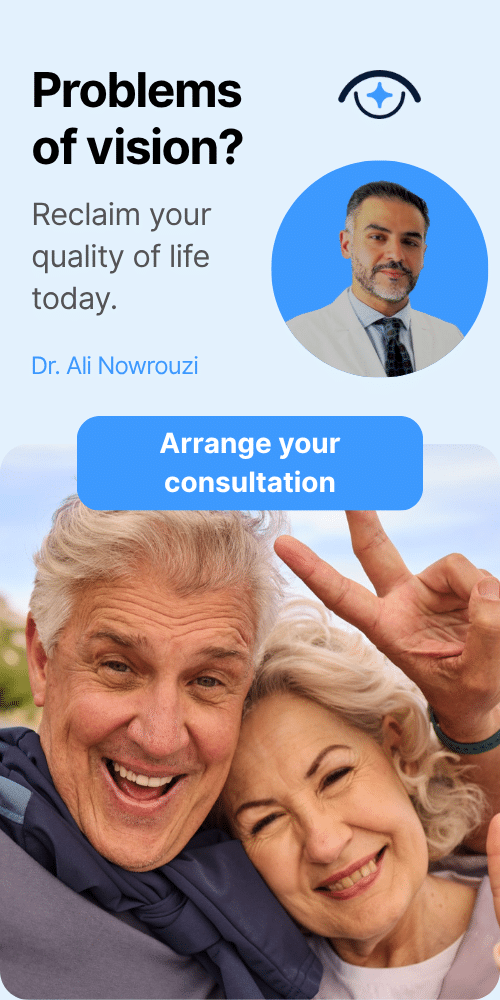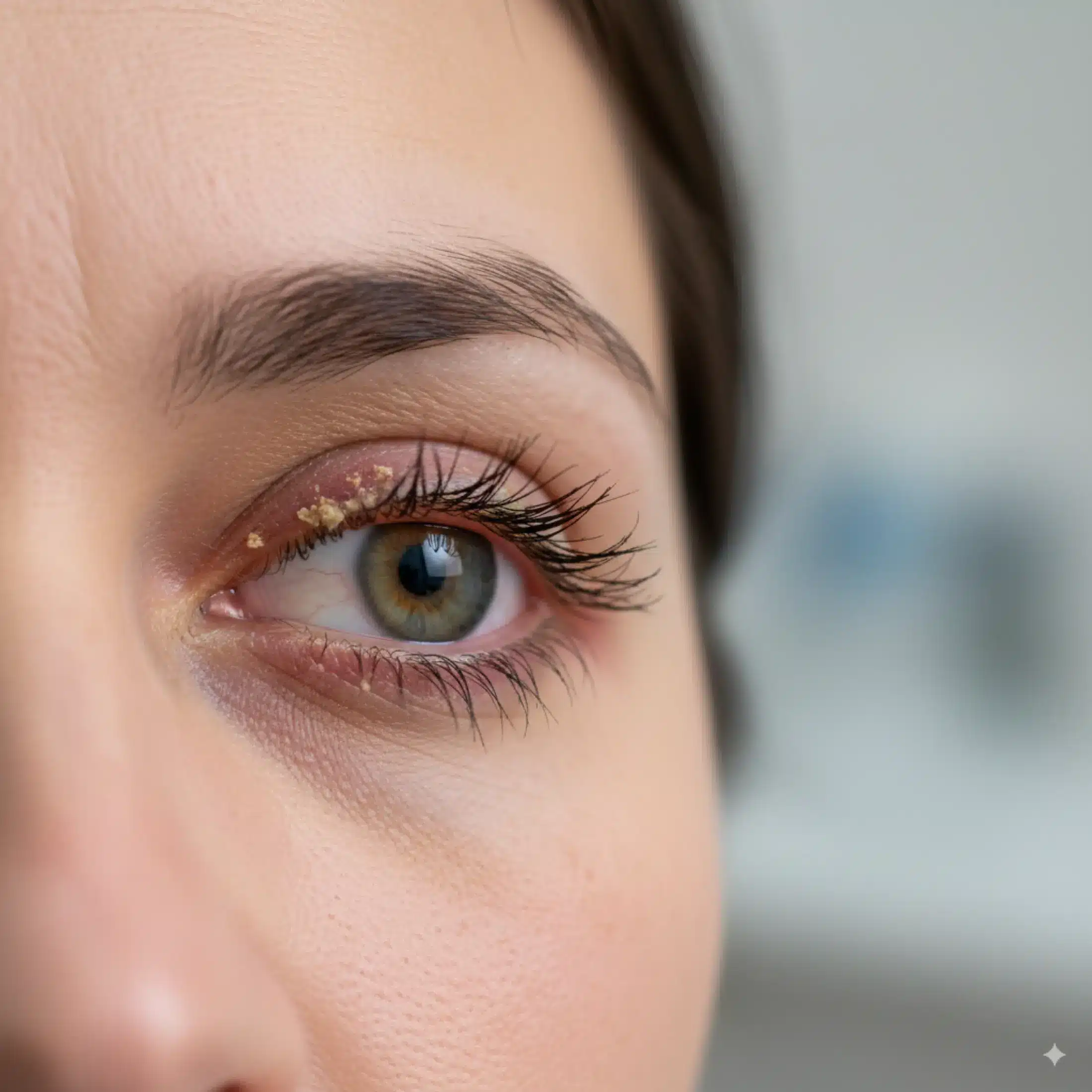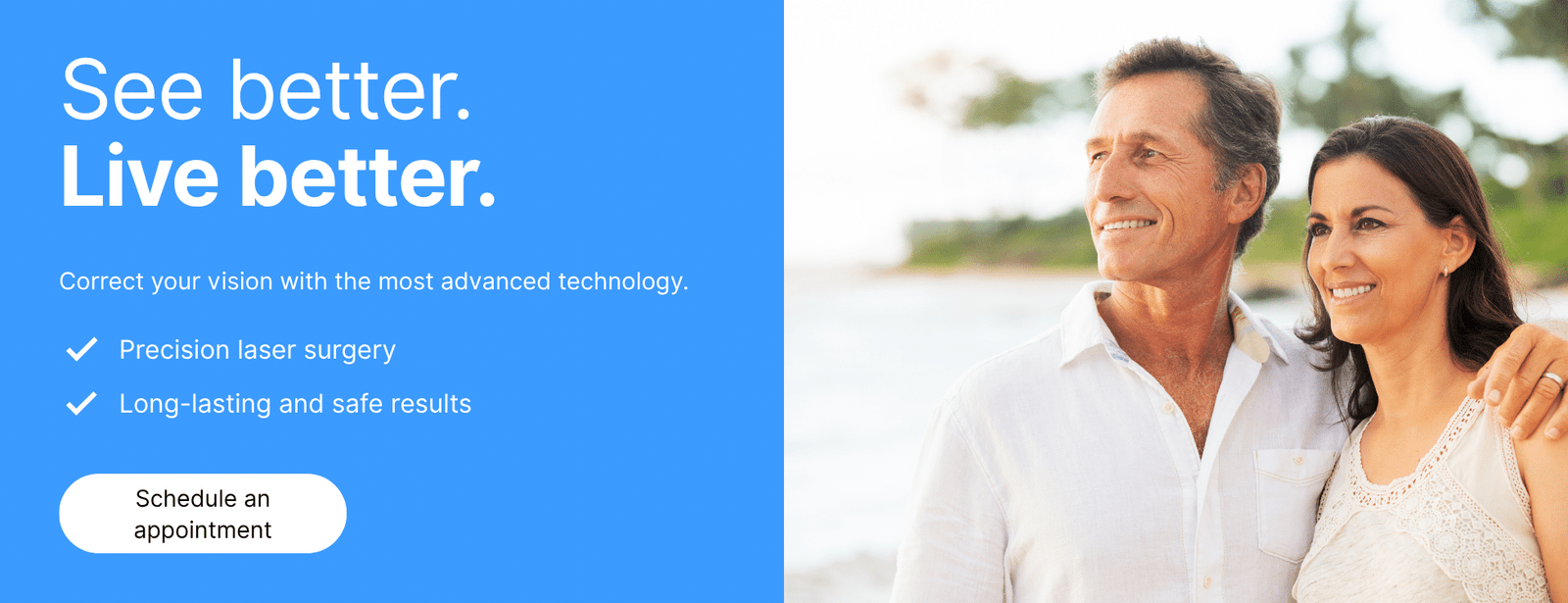More and more people are looking for freedom from reading glasses without sacrificing clear, natural vision.
In my practice, I use the most advanced combination of artificial intelligence, precision biometrics y femtosecond laser-assisted surgery to provide accurate and personalised visual results for each patient.
The aim: to achieve a more balanced vision, without annoying halos and adapted to today's pace of life.
What is presbyopia and how does it affect everyday vision?
The presbyopia is a visual condition that appears progressively from the age of 40-45, when the crystalline lens loses its natural focusing ability. This makes it difficult to read, use a mobile phone or work at the computer, making it necessary to depend on glasses for close-up.
Today, thanks to modern surgery and the support of AI, it is possible to regaining a functional vision at all distances without continual dependence on glasses or contact lenses.
Most common symptoms
- Difficulty reading small texts or focusing closely.
- Need to move away from mobile phone or reading.
- Eye fatigue and blurred vision at the end of the day.
- Constant dependence on glasses for everyday tasks.
Premium intraocular lenses: precision engineered with artificial intelligence
The premium intraocular lenses (IOLs) represent the most advanced evolution in the treatment of presbyopia. Developed with artificial intelligence algorithmsoffer a customised optics which improves sharpness and contrast, reducing halos and night glare.
These lenses adapt to the lifestyle of each patient: from those who read every day to those who drive long distances or use screens on a regular basis.
My work consists of selecting the right lens for each case, following a full visual study and AI-based simulation of results.
Lens types: trifocal, EDOF and non-diffractive lenses
- Trifocal: correct distance, intermediate and near vision with a high degree of spectacle independence.
- EDOF (extended range): offer continuous and natural vision, minimising night-time halos.
- Non-diffractive: latest generation of lenses without optical rings, designed to provide a natural vision without dysphotopsias.
High-precision eye biometry: the first step towards perfect vision
Successful surgery begins with an accurate measurement of the eye. I use state-of-the-art technology such as the ZEISS IOLMasterwhich performs a complete corneal and lens biometry by scanning source OCT.
These measurements, combined with AI-based predictive formulaeThe new, millimetre-accurate calculation of the intraocular lens power, which allows for a personalised and stable vision from day one.
ZEISS IOLMaster technology and total corneal measurement
Thanks to advanced models such as Barrett, Kane, EVO and Hill-RBFusing machine learning, we are able to accurately predict postoperative refraction, even in complex or previously lasered eyes.
Every 0.25 dioptre counts, and AI allows us to get closer to the ideal result.
Preparing the ocular surface for an optimal result
A key step before surgery is optimising the ocular surfaceespecially in patients with dry eye or Meibomian gland dysfunction.
An eye with an unstable surface can alter the measurements and compromise the accuracy of the lens calculation. For this reason, we apply pre-treatments such as the Intense Pulsed Light (IPL)which improves tear quality and stabilises measurements prior to the procedure.
Benefits of IPL treatment prior to surgery
- Improves tear film stability.
- Reduces evaporation and visual discomfort.
- It ensures more reliable measurements and sharper results.
- Increases comfort and recovery after surgery.
Femtosecond laser-assisted surgery: maximum precision and safety
The femtosecond laser-assisted lens surgery (FLACS) takes precision to another level.
This system makes it possible to carry out a perfectly centred capsulorhexis, fragmenting the crystalline lens with minimal energy y correcting astigmatism by image-guided incisions.
The result is a more controlled, gentler and safer intervention, with rapid recovery and a more stable lens placement in the long term.
Who can benefit from this technology
This technique is suitable for people with presbyopia or cataracts who wish to regain clear vision at all distances and reduce their dependence on glasses.
Each patient is different, which is why I make a personalised assessment to determine the lens, technique and degree of visual independence best suited to your lifestyle.
Ideal patients
- Over 45 years of age with difficulty focusing up close.
- Cataract patients who want a complete correction.
- Active people looking for freedom from glasses in most situations.
Adaptation is rapid and progressive, with stable vision within a few days or weeks.

Frequently asked questions about presbyopia and intraocular lenses
Will I see halos or glare?
Current AI-optimised designs significantly reduce night halos and improve contrast, especially with EDOF and non-diffractive lenses.
Will I need glasses after surgery?
In most cases, no. Patients enjoy visual independence in almost all tasks, although occasional support may be needed for prolonged reading or very small print.
What is recovery like?
The surgery is outpatient, painless and with rapid recovery. Vision improves in the first few days and stabilises completely within a few weeks.
Schedule your personalised assessment with Dr. Ali Nowrouzi
If you find it difficult to read or are becoming increasingly dependent on glasses, schedule a complete presbyopia evaluation in our clinic in Marbella.
I will design with you a precise and personalised visual strategy, based on the most advanced technologyso that you can once again enjoy a clear, natural and unrestricted vision.
Contact us at info@dralinowrouzi.com






